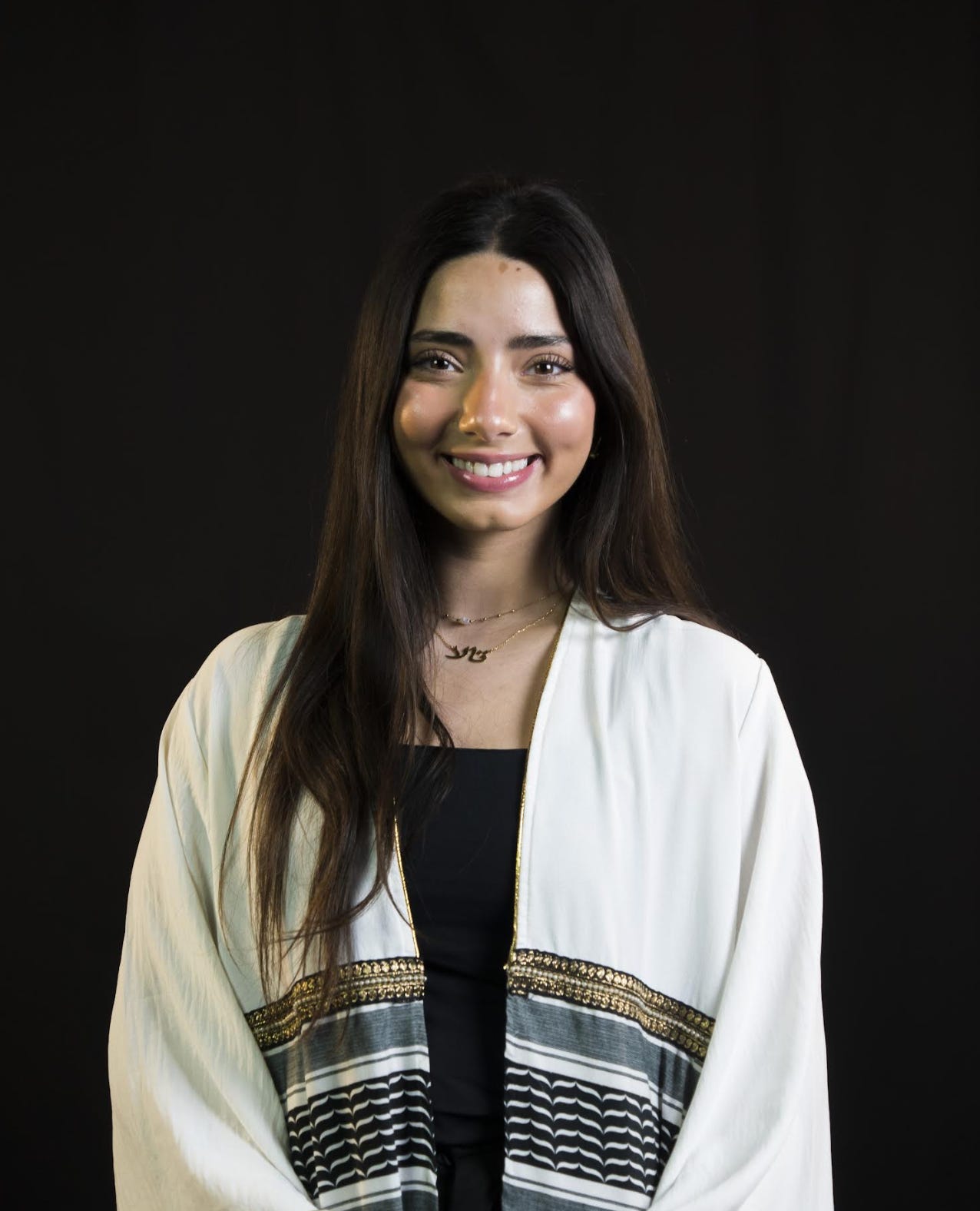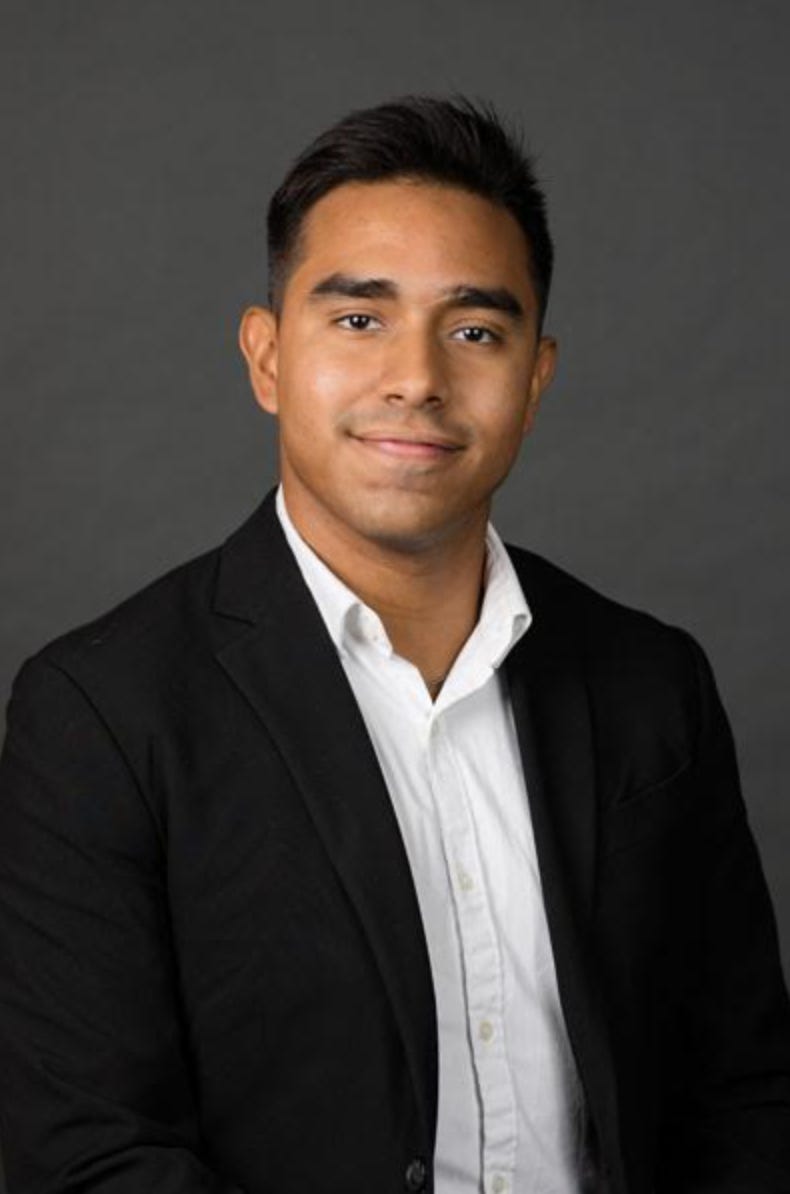What's it like being another religion at BYU?
We asked Tala Alnasser and Javier De Los Reyes-a Muslim and a Catholic student, respectively-about what it’s like to practice their faith at a Latter-day Saint university.
Universities are like mini societies that accommodate a broad range of human needs. More than a place of learning, they are a home for students. They provide classrooms and libraries, but also places to eat, sleep, and exercise, places to do laundry and hang out with friends, as well as places for medical care, financial help, and even therapy.
Increasingly, universities grasp that to be a proper home, many students need a place for worship. In a diverse world like ours, this means places for worship.
One might think that secular universities would be better at accommodating religious diversity, since they strive for neutrality. But without a topdown understanding of why religion matters, secular universities either A) ignore religion entirely, as though its not a part of student life or B) assign it to niche departments for “diversity” or “wellness”, though they may not understand why religion matters to students, either.
Religious universities, somewhat paradoxically, are well-equipped to accommodate students of diverse faiths. Believing that religion is fundamental to life, they often A) double down on the school’s dominant faith, but can also B) invite students into a richer, multi-faceted dialogue about the role of faith and the nature of God.
For an example of a religious school that does a lot with option B, check out What It’s Like to Attend Georgetown University as a Non-Catholic. Where young people earnestly seek purpose and meaning but may have inherited suspicion of religious institutions, multi-faith dialogue is a powerful way to invite them to explore religion.
Below, two students share a glimpse of what religious diversity looks like at Brigham Young University. While the vast majority of students are members of The Church of Jesus Christ of Latter-day Saints, a small number of students from other faiths have also chosen BYU as their home. These students have found ways to build community and foster dialogue, culminating in the formation of BYU’s Interfaith Club.
Tala Alnasser - “The university understands the importance of building a life based on faith.”
Tala Alnasser is a Muslim student at BYU from Palestine and Jordan. Tala currently serves as the first Muslim Executive Vice President of the student body at BYU. She is pursuing a double major in Public Relations and French with a minor in Sociology. She wishes to continue on to grad school gaining a joint Juris Doctor and Masters of Divinity. Tala is extremely interested in inter-faith work as her experience at BYU has placed religion at the forefront of her mind. It is because of that that she aspires to conduct research on the intersection of religion and law and continuously seeks opportunities of learning. Tala loves immersing herself in cross-cultural and interfaith events. In her free time, Tala plays chess, cooks, and reads.
Why did you choose to go to BYU? How did/do you feel about its religious mission?
I came to BYU because I was interested in a faith-based approach to education, and the best way to test its efficacy is to immerse yourself in it.
How does it feel to walk around campus as a person of your faith tradition? When does it become visible to other people?
I am rather comfortable walking around campus as a Muslim, however not being Hijabi, people have no clear indicator of my faith unless they conflate Arab identity with Muslim identity. My faith becomes visible to others when I pause a meeting/class to pray. It also becomes visible when I am fasting and refuse food when offered.
How does BYU's administration and culture accommodate people of your faith tradition? Are there ways in which its mission makes it a uniquely hospitable place for you to go to school? Where could BYU do better?
Due to the systemic valorization of religion at BYU, the university understands the importance of building a life based on faith. For that reason, administration has been incredibly accommodating. We have a prayer room here on campus, host Ramadan Iftar completely funded by different university departments, my professors allow me to leave class to pray, etc.
I would advise anyone to listen and fight the urge to relate to whoever you are talking to. Connection is most powerful when you internalize the person’s experience not to take it as your own, but to love it because it is theirs. As a Palestinian and as a Muslim, I have seen how empathy numbs with time, but passion never tires.
What have you found are the elements of inclusion that matter most to you, and make the most meaningful difference in your well-being? Is "inclusion" even the right word? What do you want to feel, as a minority on campus?
Inclusion is most powerful when it is systemically implemented, meaning there is an institutional effort to cultivate a culture of learning that does not shy away from difficult conversations and that places difference as a medium for connection not divisiveness. Practically, this means allowing students to express their cultural/religious background for the purpose of challenging existing architectures people may have about them. It is not merely to connect through similarities but to expand one’s moral imagination through discussions on different experiences and ways to institutionally do better.
Javier De Los Reyes - “People are used to worshipping, so… we received a lot of support.”
Javier De Los Reyes is a senior in the Marriott School of Business at Brigham Young University, pursuing a degree in Information Systems. Originally from Piedras Negras, Mexico, he was raised in the Roman Catholic faith and serves as the President of the BYU Catholic Newman Club, where he fosters community and interfaith dialogue. Beyond his academic and leadership roles, Javier has a strong passion for music, songwriting, graphic design, and sports. He enjoys meeting new people and time spent with friends and family.
Can you share a moment at BYU where someone surprised you in how they responded to your faith identity?
It happened with one of my good friends. When he first found out I was Catholic, he was very surprised. He stated how coming to BYU, one of his main concerns was that he was worried he would be sheltered in a bubble, not exposed to anything but the same culture of the same religion with the same type of people. So he was very grateful to have been able to meet me because it gave him a little more diversity of thought, expression, and faith in his life.
How does it feel to be among students/peers who are leaving on and returning from proselytizing missions?
It definitely makes you a little uncomfortable. With a couple of RM’s (Returned Missionaries) I sometimes wonder if they are nice to me because they genuinely like me or because they subconsciously feel they have to be nice to talk to me about the Gospel.
Can you share a moment of an interfaith "fumble" where you and another person failed to see each other and communicate clearly because of a faith difference?
When I first got here to BYU, I had a lot of disagreements with people. The main reason is due to our perspectives on the “Church”. Both the Catholic and the LDS Church are “authoritative” institutions that command their members how to interpret scripture and doctrine. I am a very traditional Catholic and believe that to be a true Catholic you have to have complete trust in the Church. On the other hand, I have met many LDS members that, while still loving the Church, disagree with it on many topics, like lust, abortion, marriage, certain doctrines, and birth control. I also disagree on dating and marriage a lot here, because it is such an essential doctrine that many people rush into it or sometimes even force, whereas in the Catholic view it is an option if God guides you through that path. We believe not all people are called to start a family.
What in your faith tradition guides you in how you treat people not of your faith?
I did not grow up in a culture or tradition that was supportive of other religions. Back home in Mexico, all people were Catholic, and if you weren’t, they would not judge you, but they would take no interest in your practices or doctrines. I decided I did not like that approach, so I decided to change my beliefs about that.
One thing about Catholic tradition and culture is sharing. Catholicism is such a big part of many cultures like Spanish, Italian, Latino, etc and simply sharing those cultures has helped me realize how valuable it is to other people. I think the goal should not be to convert people, but to share your beliefs and beautiful things about your religion, and if people feel called to join your religion then good! If not, then God has not opened their heart to that.
How do you think a religious university can accommodate religious diversity, compared to a secular university?
I think a religious institution is more willing to provide spaces for worship, aid in religious events, and understand certain accommodations for people of other faiths. One thing I can think of is having Catholic Mass at BYU. People are used to worshipping, so when we pitched the idea for the first time, we received a lot of support from many other people because they are always willing to worship God.





